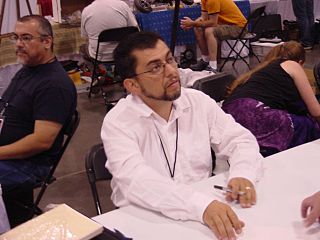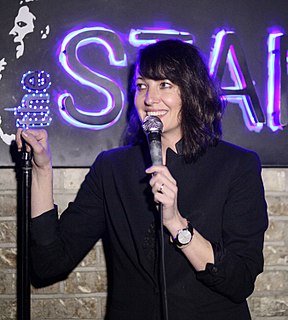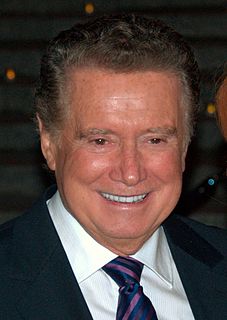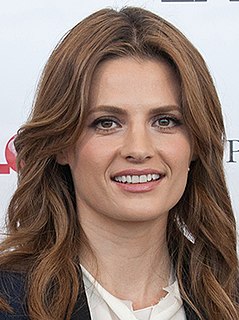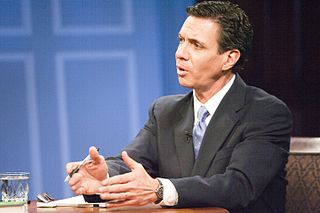A Quote by Jaime Hernandez
It's rare that I actually have a story in my head. I have events or 'what's the next move?' Like, Maggie, 'where's she going to go in this story, where's she going to end up?' Then the story has to fill in the in-between, and that comes as I'm starting it.
Related Quotes
My sister is also retarded. Across the board. She's a one hundred per cent, honest to goodness, born that way retard. I learned a long time ago that if you're going to tell a story about your retarded sister, you need to mention she's retarded right off the bat or inevitably, at the end of the story, someone will say, What... is she, retarded? And then you have to go, Uh... yeah, she is. Followed by a lengthy, awkward silence.
He thought about the story his daughter was living and the role she was playing inside that story. He realized he hadn't provided a better role for his daughter. He hadn't mapped out a story for his family. And so his daughter had chosen another story, a story in which she was wanted, even if she was only being used. In the absence of a family story, she'd chosen a story in which there was risk and adventure, rebellion and independence.
Say you have a headline like "Mountain Bike Stolen," and then you read the story, read another story about it the next day, and then the next week, and then the next year. News is a process of expansion, the filling in of detail, and making narrative connections - not based on chronology, but based on features of the story. There are narrative connections made between props, between characters, between situations, and so forth.
I'll tell you, Liz Cheney is going to be a very good candidate. I worked with her during the Bush campaigns. She's smart, she's focused, she's disciplined - and she's got a great back story. She's got a large family. She's a great mom. And she's a hard worker. I think she's going to be a very effective campaigner.
I came across an old story of mine that I'd written a decade ago. The main joke of the story is that a mother is telling her children about how she met their father online. The majority of memories the mother has all have to do with really funny links he sent her, a music download that she loved, etc. - and because of these superficial details she fell in love with the father. Reading it today, it's hardly a dystopian story; it's simply a realistic story about how people actually meet.
That's what I love about documentary filmmaking, we never know where the story is going, we don't know what is going to happen next, and we're inside a culture of people that you have to figure out in many ways. It's a relationship between what you thought might have been the story, and what happens in the 'field.'
Any time I put together a story collection, I don't know what it's going to look like overall - or even what the title story is going to be. Over time, I end up with a dozen or so stories, and I start to see a shape to them, how they fit together, and then I write stories that complement or extend that shape.
If you're a certain type of actor, then eventually stepping into a director's shoes is a natural transition. I've always been the actor who's very focused on the narrative, where my character is in the story, and how I can benefit the story. I've always had a technical aspect of what the lens is, how the camera is going to move, how I can feed the information the director applies within that move. If you're that type of actor, narrative-based, technically proficient, the next step is actually not that far.
